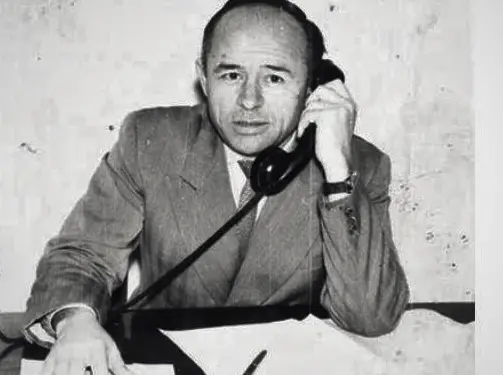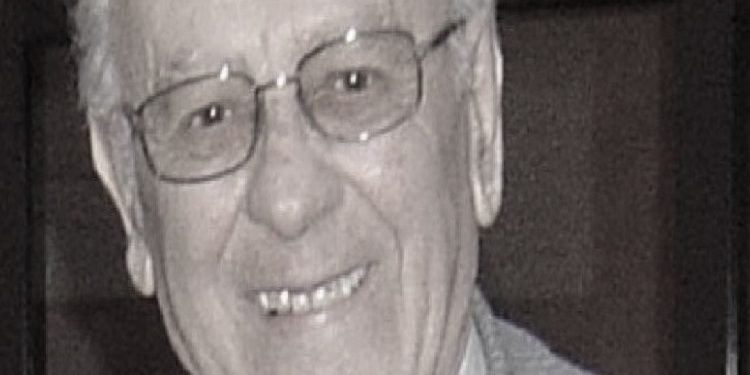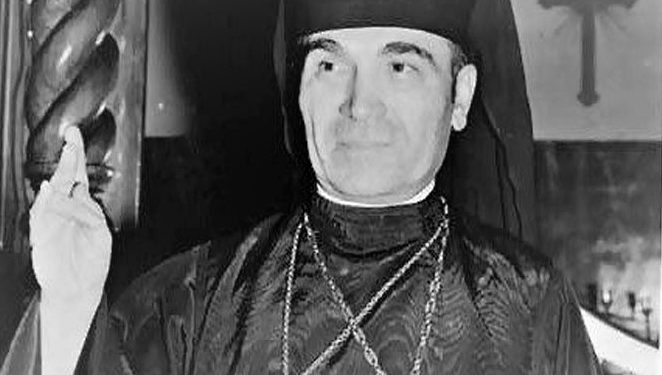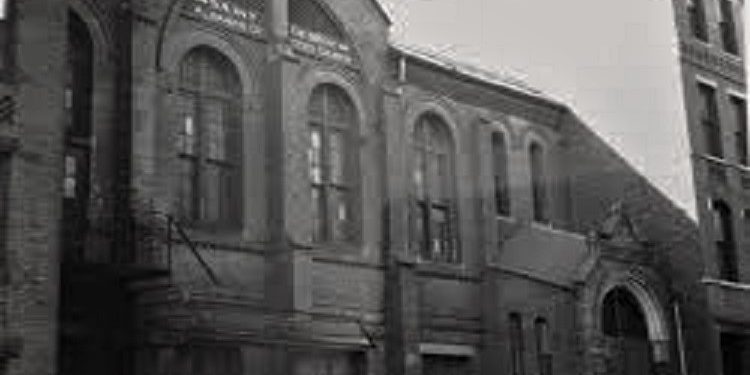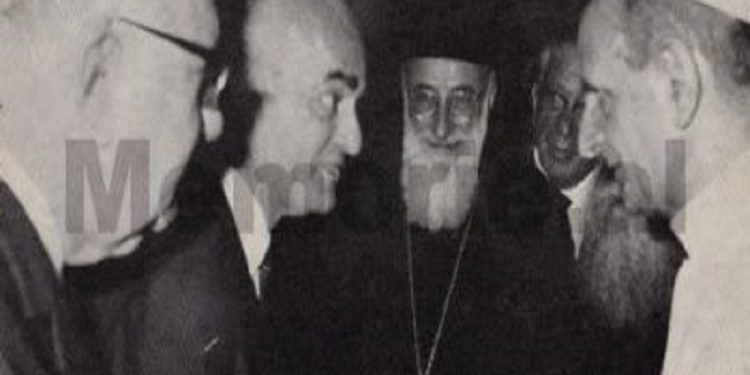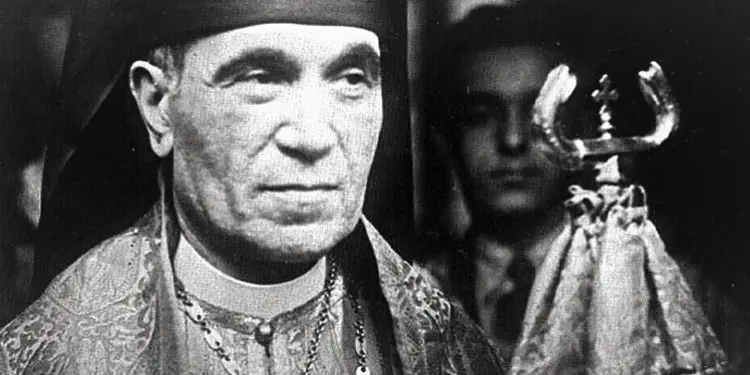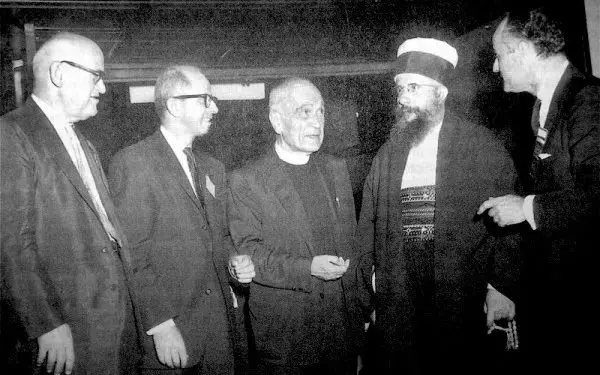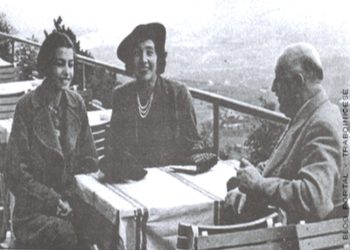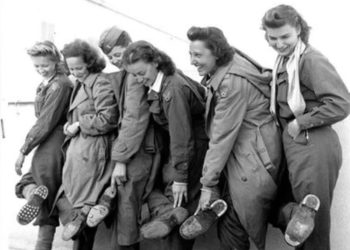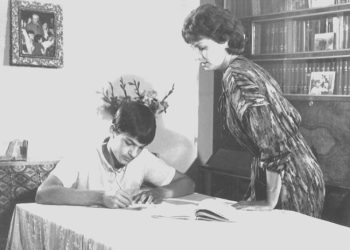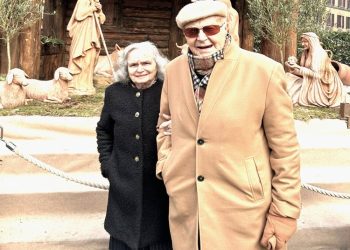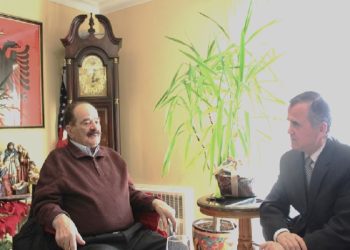From Duro Mustafai
The first part
Memorie.al / We met Jonuz Mersin in 2004 when he was 82 years old, while he tells much less. With republican cap and well dressed, he resembled the model official of old. Spare in words, but with a good memory, Mersini narrated the interesting stories of his life. Former commissioner of the “Sali Murati” partisan detachment of Vranishti, Vlora district, he participated in many important actions. Then with the creation of the 5th Assault Brigade, Jonuz Mersini, one of its cadres, was involved in all the battles that this unit undertook both within the territory of Albania and in Kosovo and Yugoslavia at that time, until Bosnia and Herzegovina. Even a bullet did not stop his deeds even though he took it twice in battles with the invaders. A long career in the structures of the Albanian secret service, (Director of the Directorate of Political Intelligence, camouflaged at the Ministry of Foreign Affairs as a diplomat, operating outside Albania), first in Tropoja and then in New York and other places . The man who served for more than 40 years in important structures of State Security and diplomacy, as a camouflaged detective, narrates the most incredible events, which he brings as if they happened today.
The 82-year-old originally from Vranishti, Vlora, does not hesitate to express how he, the former official of the communist government of Tirana, met Fan Stiljan Nolin in 1958. Where did he get the orders for this secret meeting and why did the senior leadership insist on conveying the proposal to Noli, for him to return and live forever in Albania. How did Fan Stilian Noli react to this request and why did he reject it?! What did Noli say in that several-hour conversation in the Orthodox Church of New York and what were the reactions of the American FBI, after Mersini’s meeting with Noli and who called him “Red Bishop”?!
Then the professional life of Mersin continues with other episodes, where the most heard is that of the “kidnapping” from Poland of Kazhimir Mijal, former secretary of the Polish Communist Party, and his illegal bringing to Albania, as he was followed by the Polish government. Mersin’s testimony continues with his diplomatic activity in the salons of kings and princes of some Southeast Asian countries, or with meetings with Albanian emigrants in Argentina and the USA. Jonuz Mersini claims that throughout his activity in the service of the homeland, he aimed to preserve the sovereignty and dignity of the country.
I am addressing you with: Mr. Mersini, how did you start working in the State Security bodies and what were the first impressions of your duties as head of this service in the Tropoja district?
I went to head the State Security section in Tropoja in 1948, right after the breakdown of relations with Tito’s Yugoslavia. I say that I was sent to establish order, as there was total chaos and that Tropoja was a district isolated from the rest of the country, as it was not connected by highways. Tropoja was connected by road with Kukës, via Kosovo. I knew this district during the National Liberation War, but at the same time I had heard about the historical past and the patriotism that the people of these three had shown in the successive wars against the Turkish and Serbian invaders.
I remember that at that times some cadres of the district, among whom I was also, called us in Tirana and asked us where the road should pass to get to Tropoja, without going through Kosovo. In this meeting, we were instructed to gather the residents and discuss with them this problem and others in that area. The people of that area supported us without reservations in this venture and also in all our activities there, especially in the fight with the UDB, the Yugoslav Secret Service. During the almost three years that I served in that district, I worked in very difficult conditions. My life there resembled the partisan one I had led during the War. However, I can honestly say that the people of that area helped me by making my work easier. I have good memories of my activity in that area and I can say without reservation that I became spiritually connected with them.
I gained trust in the people of Tropojan, that if they gave you their allegiance, “they wouldn’t talk about it”. I remember that on two or three occasions some ordinary prisoners escaped from our prison and through their family connections, I went in good faith to the forests where they were hiding. I convinced them to surrender, agreeing to go and stay with their families for one night. The next day, they came to the Internal Affairs Branch themselves. While in two other cases, related to two Yugoslav agents, who had entered our country illegally, with the help of the people, we managed to catch them and put them in our service.
As a representative of the Albanian communist state, it is said that you met Fan Stiljan Noli in 1958?
Yes, this is true. But it is known that Fan Noli had previously met with Albanian diplomats in America. So I want to emphasize that he stayed for about a month with the Albanian delegation that went to the United States of America in 1946, headed by Colonel Tuk Jakova. He helped this delegation as a patriot and as an Albanian. This, of course, had caught the eye of the government of Tirana, for good.
Where was the conversation with Fan Noli?
I had the conversation with Noli in unnatural circumstances, at night in the church and not in our diplomatic mission, or in any bar. This was done at his request. So, after he would move to the permanent residence in Florida, with the help of priest Belba from Korça, who administered the New York church, Noli requested that on this occasion he meet any of the functionaries of the mission of the Republic of Albania at the UN. I was appointed from Tirana to participate in this meeting.
I met him late at night one day in 1958, in one of the rooms of this church. He had some requests and orders for our Government and first he showed why, he was still staying in the USA, at that age when his “soul was crying” to return to his homeland. According to him, the reason was simple, since the Greek Church and the Russian Church were waiting for him to flee the USA and return to Albania, and they would take over the leadership of the Albanian Orthodox Church of America.
Noli also told me that, if the Albanian Church were to leave, the Albanian Colony of America would also leave, because the Church kept that colony united and in a patriotic position. “Thus, son,” he told me, “both you and I must beware that these US counter-intelligence agents are following us.” Here, Noli told me how in 1946, as soon as the Albanian delegation had left, he was called to the FBI, the US Federal Bureau of Investigation, and asked what he had discussed with the delegation during a month. His answer had been: “I am Albanian and a person who deals with religious problems and I do not enter into such jobs”.
So, since that time, Noli was nicknamed: “The Red Bishop”, although they had no facts that he had violated anywhere the interests or laws of the United States of America. Since 1946, when the American service nicknamed him the “Red Bishop”, Noli has not had any contact with Albanians who came from Albania. Even the meeting with me 12 years later, at night in the church, he justified with the fact that, “here they talk about democracy, but you have to spread your legs as far as the quilt, otherwise they will cut them off”.
What did the other Noli tell you in that meeting?
After many hours of talks about the problems of the Church, Noli asked our government that the Autocephalous Church of Albania send as much material and information as possible to the Albanian Church in America, because he intended to write the history of our church there in America. He told me expressly: “After my death, there is a danger that our Church in America will fall into the hands of the Greeks, and if this happens, even the Albanian colony will not want that.”
Therefore, he insisted that the government send a bishop and two patriotic priests before his death. Noli requested that these actions be done while he was still alive, because after his death, they could hardly be accepted in the USA. Noli was very enthusiastic about opening the first University in Tirana.
“This, he said, will create the intelligence of the country, which would rank Albania alongside the advanced countries of the world.” He recommended collecting numerous documents, among them the rich folklore that was found among the Albanians of Greece and Turkey. Noli was of the opinion that the Institute of History should collect the many studies of Taloç, Jiriček and Shufla.
With the instructions of the Ministry of Foreign Affairs, I asked Noli if he could undertake the translation into Albanian of Dante’s “Divine Comedy” and Tolstoy’s “Resurrection”. He answered me that he took on the latter, while “Divine Comedy” was not, because it was difficult and required a lot of time. Fan Noli also asked me for some publications that were made in our country at that time and that were missing from his personal library. After a few days I found these books in the library of our Mission in New York and sent them to him.
Fan Noli also ordered me to report to our government that, in Istanbul and Belgrade, there were very old documents of great value for the History of Albania, and that ways had to be found to get them from the archives of them, as they would help to write the complete history of our country. I had put the notes of the conversation with Noli on paper in those days and sent them all with a special reference to our Ministry of Foreign Affairs. I have no doubt that even today these notes are found in the archive of this ministry.
Did you ask Noli to return to Albania?
I said above that I made this request to Noli, that this was how I was commissioned, but at the same time he answered me negatively about it, not that he didn’t want to, since his heart was burning for the homeland, but he should be in America that, the Albanian Church there, not to fall into the hands of the Greeks. Therefore, even against his will, he had to stay in America. Noli expressed this opinion to me several times. If Noli were to return to Albania, there is no doubt that he would be welcomed, let’s say as a hero, by the Albanians.
What impression did Noli’s figure make on you?
Throughout the several hours of conversation I had with Noli, although he had made a long train journey to the South of the USA and was 76 years old when I met him, he struck me as a physically developed and mentally clear man. . This was seen in the problems he raised both for the problems of the Albanian colony of America, and for the problems that preoccupied Albania. It is known that Noli was a knowledgeable man in many fields.
– The secret action that brought Kazhimir Mijalin to Albania –
Mr. Mersini, you led a group of detectives based in the Ministry of Foreign Affairs in Tirana. What were the tasks of this group?
In 1966, which was called: the year of the fight against bureaucracy in our administration, many cuts and changes were made. The Directorate of Political Intelligence, which was in the Ministry of Internal Affairs and headed by Zoi Themeli, was merged, creating two groups of intelligence officers, reduced in number. I was put in charge of the group of scouts who were deployed to the Ministry of Foreign Affairs, while the other group, the largest in number, stayed at the Ministry of Internal Affairs.
The detectives of the group that stayed in the Ministry of Internal Affairs were engaged in agent actions through the border with Greece and Yugoslavia. Our group, which was very small in number, settled in the Ministry of Foreign Affairs, to be camouflaged, and ran our residences in the diplomatic missions.
You had to carry out the detective mission under the guise of a diplomat. Is this true?
Intelligence tasks are always carried out under diplomatic camouflage, otherwise no one allows you to do intelligence work abroad without this function. This is a universally recognized practice. Of course, to be a good discoverer, you must also be a prepared diplomat who, in every conversation you have with people, aims to put them at your service.
Initially, this intention should not be understood, otherwise, if the person manages to understand your intention and, if he is a provocateur, he goes and immediately denounces you to the relevant bodies of his country and sets traps. For such things, you go to prison or at least, you are declared: “persona non grata”.
As a whistleblower, have you ever felt at risk?
The life of the discoverer abroad is always in danger, because all the actions are done under the tracking of the State Security; act and you have no protection, except the diplomatic passport. When an overseas detective contacts an agent, he is under the threat of the provocateur for the entire time, until the agent provides the necessary evidence.
It is especially about agents who work not on a voluntary and patriotic basis, but on the basis of monetary interest, that is, for money. I have felt myself endangered many times. Any contact with an agent is always risky. But I felt myself most closely in 1966 when I went on a mission to Gdansk, Poland to illegally take, at any cost, a certain Kazimierzh Mijal, who called himself the first secretary of the Marxist-Leninist Communist Party of Poland. Memorie.al
The next issue follows




